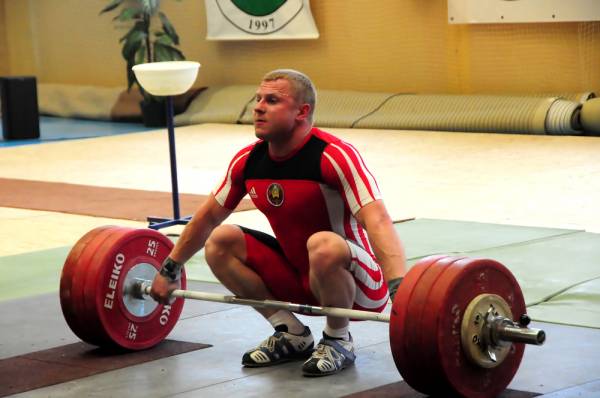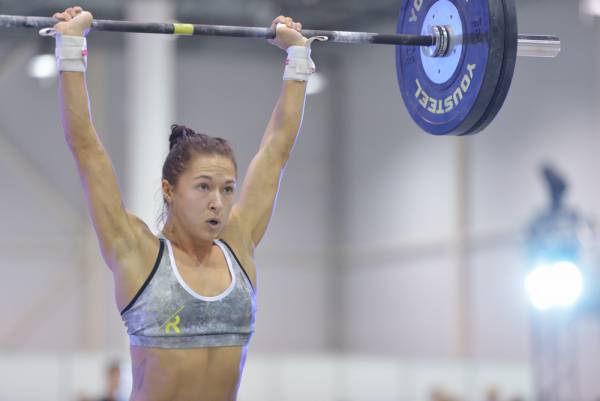With the growing popularity of various barbell sports, there naturally comes an increase of people who want to learn to lift heavy weights. Within this passion we see a lot of mistakes being made on many levels, some of which are detrimental to new lifters and their goals.
At my gym, Panthera, the other coaches and I discussed what we felt were the five mistakes every new strength athlete makes and the ways we can prevent them from happening or continuing. If you want to get on the right track, take a peek below.
Setting Too Many and Too Complicated Goals
This is the most detrimental mistake. It can be frustrating for you to see other lifters squatting large amounts of weight, snatching with ease, or blazing through “Grace.”This prompts you to figure out how you can get that type of performance as quickly as possible.
“The most important part of starting out is understanding that training is a journey of learning and growing.”
You proceed to research or ask friends what is necessary and put together a complex plan full of core and assistance exercises targeting 100 different muscles. Each time you go to the gym, you spend over two hours training. While this approach might be fun for a bit, it’s not going to get you toward any of the goals you’ve chosen.
PERSPECTIVE: 10 Deal Breakers That May Be Sabotaging Your Fitness Goals
The most important part of starting out is understanding that training is a journey of learning and growing. Think of training as a continuum. Consider yourself a student of whatever discipline you are trying to undertake and understand progress takes time. As ambitious people, we may not like hearing that, but it’s the truth.
One of our coaches, Mike Hedlesky, can deadlift over 800 pounds and won a gold medal in the deadlift at the 2013 IPF world games. He is the first to say it didn’t happen overnight. In fact, it took him fifteen years of consistency, learning, and making adjustments.
If you are committed to the technique required for your sport, the major components of strength necessary for success, and the stressing of the correct energy systems at the right times, you will be on a better track than 95% of the people around you.
CONSIDER THIS: Screw Goals: It’s All About Your System
With my clients, we set short term, moderate, and long-term goals. This is important because we need to feel satisfaction in our daily and weekly training. Hitting short term goals while keeping our eyes set on the moderate and long-term goals will produce consistent progress. It really is that simple.
Waiting Too Long to Compete
As a new lifter, if you traverse the Internet, you will undoubtedly come across Internet forums. There you will find lifters like yourself asking: “When is the right time to compete?”. Today, we can give everyone the right answer. I hope you’re sitting down. Ready?
Can you lift the bar? Congrats! You’re ready for your first competition.

There’s a huge difference between training in your facility, gym, or box and stepping onto a platform with people watching you, trying to plan your warm up efficiently, and dealing the butterflies in your stomach. Stepping on that platform makes you a competitive lifter. People spend too much time trying to hit certain numerical in-gym goals before giving their first competition a go.
“Can you lift the bar? Congrats! You’re ready for your first competition.”
Competition experience is necessary to gain an understanding of what you need to address in your training, while giving yourself the experience of having to lift within the confines of rules. Gym numbers are not competition numbers, simple as that.
RELATED: The Dark Place of Competition (Where We Learn and Grow)
On the other side, we have lifters who are competing every month. This isn’t ideal because it doesn’t give you time to build a base, whether it is in your strength or conditioning. You should plan on competing a few times during the year and organizing training around those competitions so you can peak appropriately for your best performance when it matters most.
Not Being Adaptable
Consider this: “It’s not about winning the battle; it’s about winning the war.” If you are having an off day don’t force the issue. You need to be adaptable with your training so you can make continual progress. For instance, if you are following a program and it has you doing six sets of triples on the squat, and for whatever reason you feel horrible and the set is a disaster, don’t proceed to try the other five sets – it will not end well.
READ THIS: The Deload: The Path to Bigger, Faster and Stronger
Maybe this is happening because you didn’t get enough sleep, your nutrition has been off, or your stress level is unusually high. Sometimes it’s simply that you haven’t recovered fully from the previous training session(s).
“You need to be adaptable with your training so you can make continual progress.”
To achieve consistent training and performance:
- Drop a little weight off the bar
- Do some doubles instead of the programmed triples
- Do your base training for that day
- Do your skill work
- Lose the ego
The more you get to know your body and listen to what it’s telling you, the better off you’re going to be. The person who can consistently train day after day, month after month, year after year will always be better than the individual who gets injured and has to take long breaks.
Taking Someone’s Advice Because He/She Is Strong
Just because an individual is strong does not mean he or she is well versed enough to dish out advice. Don’t get caught up in listening to lifters who have great numbers or call themselves a “guru,” but have no functional idea of what the hell they are talking about.

If you pose a question about working on your ATP-PC system, is this person even going to be able to explain what that is and its importance in your training? What about questions you have about first pull problems? Can this person correctly assess the issue and remedy it by creating a program with corrective work? Can he or she improve your leverages on the deadlift?
“Don’t get caught up in listening to lifters who have great numbers or call themselves a “guru,” but have no functional idea of what the hell they are talking about.”
Some of the strongest people competing at the highest levels of sport can also sit down and have a casual conversation about something they read from Mel Siff or Yuri Verkhoshansky. Strength does not dictate intelligence and vice-versa. Someone who can speak on these subjects but can’t squat 225 pounds isn’t the best one to listen to either. You need to be objective and thorough.
Seek out people who have a combination of strength and intelligence. They don’t have to be lifting the world or have a three-minute “Fran” time, but they do need to have respectable numbers/times and be able to speak intelligently about what’s important to you.
FOR ARGUMENT’S SAKE: What Separates a CrossFit Coach From a Weightlifting Coach?
Better yet, take a look at this person’s athletes. Is there consistent progress? Hitting personal records at the right times? Doing well in competitions? These are measureable ways to ensure you are speaking with the right person as you learn more.
Not Becoming a Student of Your Sport
Please become a seeker when it comes to the sport you want to compete in. Dig into specifics and understand what is required of you to become better. The best athletes with the longest careers are the ones who seek out legitimate information sources, read them, discuss them with others, and apply the learning to themselves.

Be aware, there is an overabundance of information on internet forums and YouTube and trying to sort through all this information can lead to “analysis-paralysis” for the new strength athlete. So, don’t spread yourself too thin trying to take it all in. That being said, if you are only scratching the surface, then you are selling yourself short.
Take the time to understand the different aspects of what your sport requires. Then learn, grow, and pass it on to someone else who is committing one of these five mistakes. Hopefully they’ll thank you for it.
Photos courtesy of Shutterstock.






